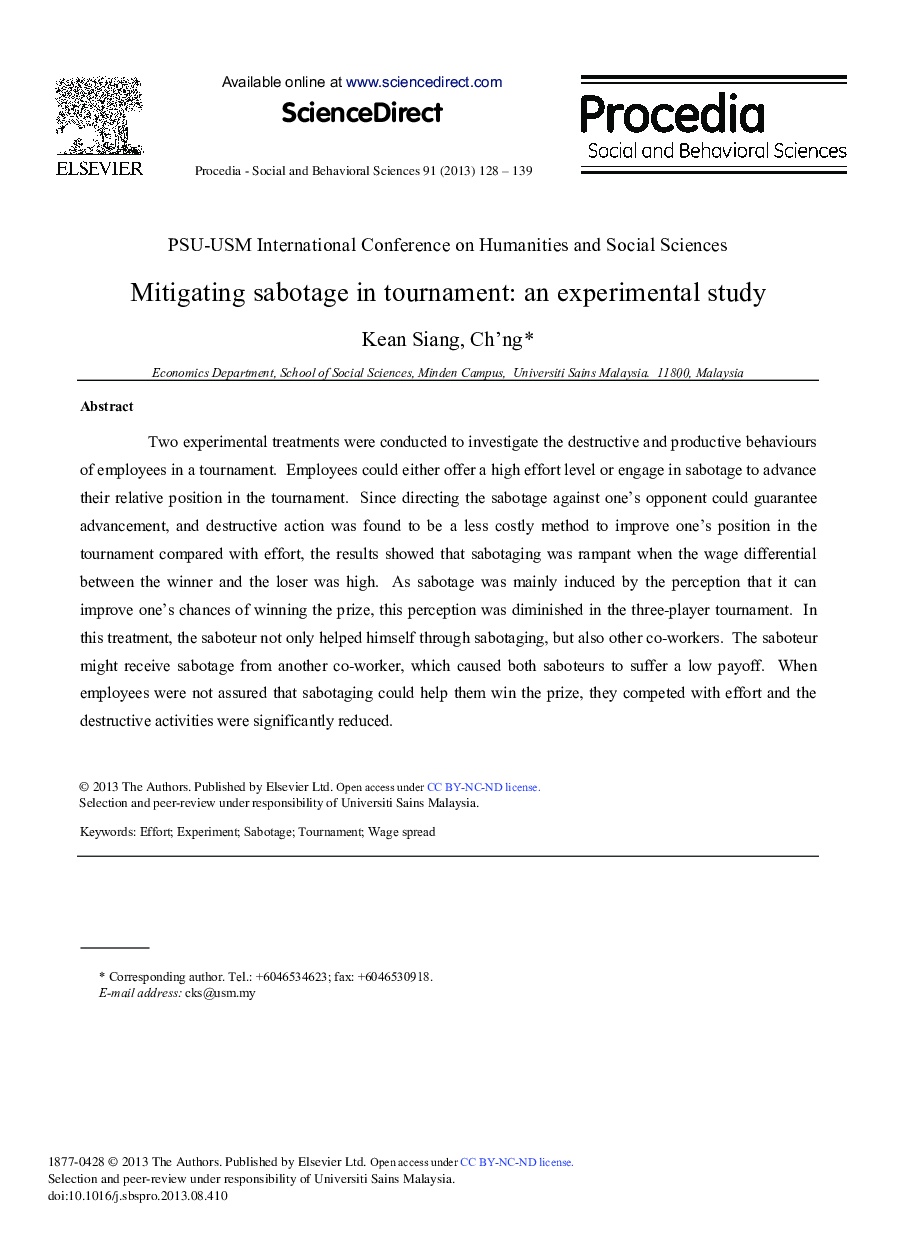| Article ID | Journal | Published Year | Pages | File Type |
|---|---|---|---|---|
| 1118312 | Procedia - Social and Behavioral Sciences | 2013 | 12 Pages |
Two experimental treatments were conducted to investigate the destructive and productive behaviours of employees in a tournament. Employees could either offer a high effort level or engage in sabotage to advance their relative position in the tournament. Since directing the sabotage against one's opponent could guarantee advancement, and destructive action was found to be a less costly method to improve one's position in the tournament compared with effort, the results showed that sabotaging was rampant when the wage differential between the winner and the loser was high. As sabotage was mainly induced by the perception that it can improve one's chances of winning the prize, this perception was diminished in the three-player tournament. In this treatment, the saboteur not only helped himself through sabotaging, but also other co-workers. The saboteur might receive sabotage from another co-worker, which caused both saboteurs to suffer a low payoff. When employees were not assured that sabotaging could help them win the prize, they competed with effort and the destructive activities were significantly reduced.
